Search
Remove Ads
Advertisement
Summary 
Loading AI-generated summary based on World History Encyclopedia articles ...
Search Results
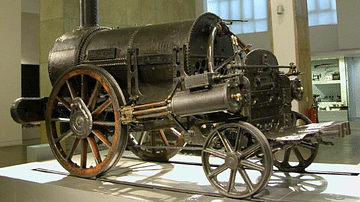
Definition
Stephenson's Rocket
The Rocket was a pioneering steam-powered locomotive invented in 1829 by the British engineer Robert Stephenson (1803-1859). For a cash prize, extensive competition trials were held to find the best locomotive in the Rainhill Trials. Rocket...
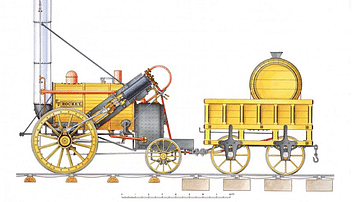
Image
Stephenson's Rocket
The Rocket locomotive steam engine was designed in 1829 by Robert Stephenson (1803-1859) during the Industrial Revolution. The locomotive won the 1829 Rainhill Trials and so was used to pull passenger carriages on the world's first intercity...

Image
The Original Rocket Locomotive
The Rocket, a pioneering steam-powered locomotive invented by Robert Stephenson (1803-59) in 1829. This photograph was taken in the Science Museum, London but the Rocket is now on long-term display in the National Railway Museum, York.

Image
Stephenson's Rocket Replica
A working replica of the Rocket, a pioneering steam-powered locomotive invented by Robert Stephenson (1803-59) in 1829.
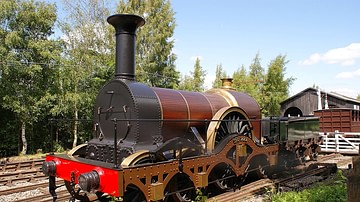
Article
The Railways in the British Industrial Revolution
The railways were perhaps the most visible element of the Industrial Revolution for many. Trains powered by steam engines carried goods and people faster than ever before and reached new destinations, connecting businesses to new markets...

Article
Top 10 Inventions of the Industrial Revolution
The British Industrial Revolution transformed life at work and at home for practically everyone. Noise, pollution, social upheaval, and repetitive jobs were the price to pay for labour-saving machines, cheap and comfortable transportation...
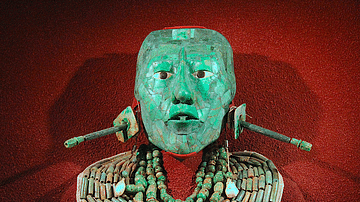
Definition
K'inich Janaab' Pakal
K'inich Janaab' Pakal (23 March 603 CE - 31 March 683 CE) was the Maya king of Palenque in the modern-day State of Chiapas, Mexico. Also known as Pacal (which means 'shield') and Pacal the Great, he is most famous for raising the city of...

Definition
Tomb
A tomb is an enclosed space for the repository of the remains of the dead. Traditionally tombs have been located in caves, underground, or in structures designed specifically for the purpose of containing the remains of deceased human beings...

Article
The Red Army in WWII
The Red Army of the USSR began the Second World War (1939-45) with a series of shocking defeats, but from late 1942, it rallied and held on to key cities like the capital Moscow, Leningrad (Saint Petersburg), and Stalingrad (Volgograd). Then...
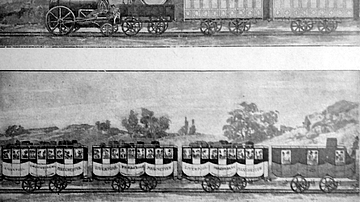
Image
Steam-Powered Passenger Train
An illustration of an early steam-powered passenger train in Britain during the Industrial Revolution. The first such line ran in 1825 from Stockton to Darlington in the northeast of England.